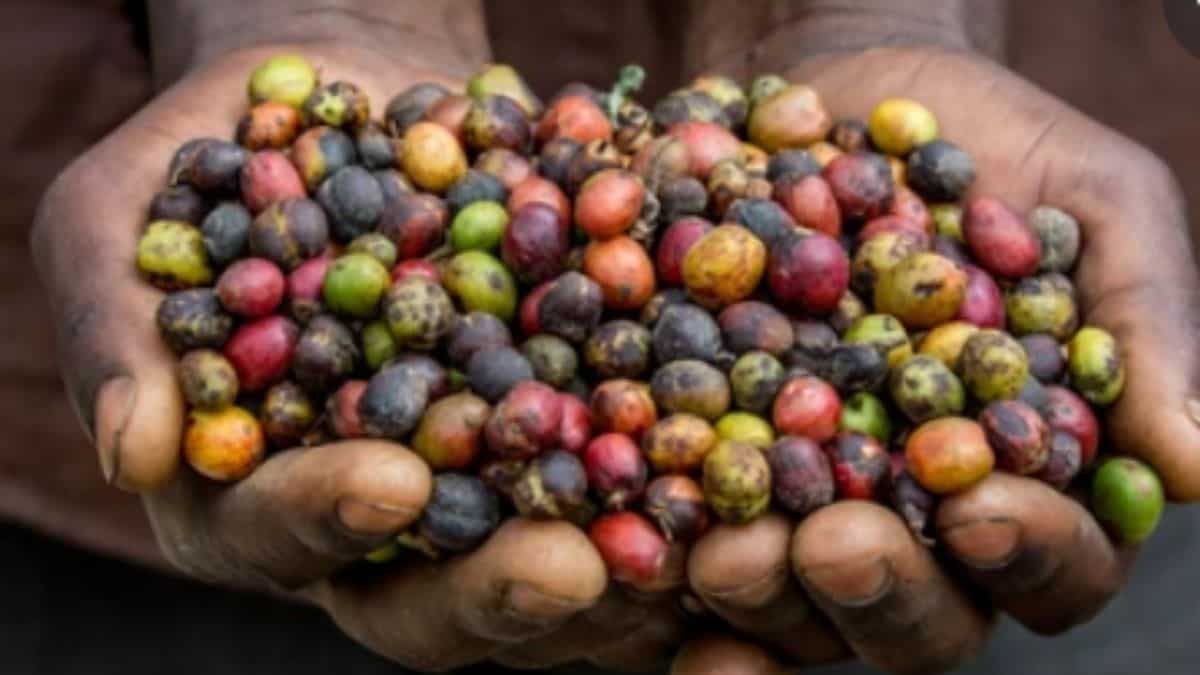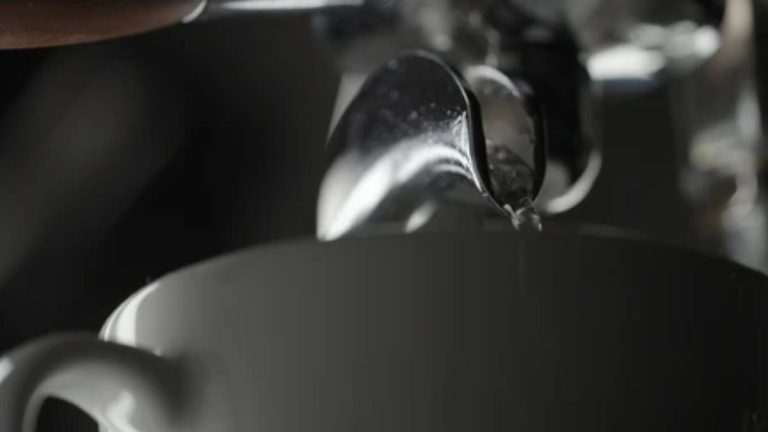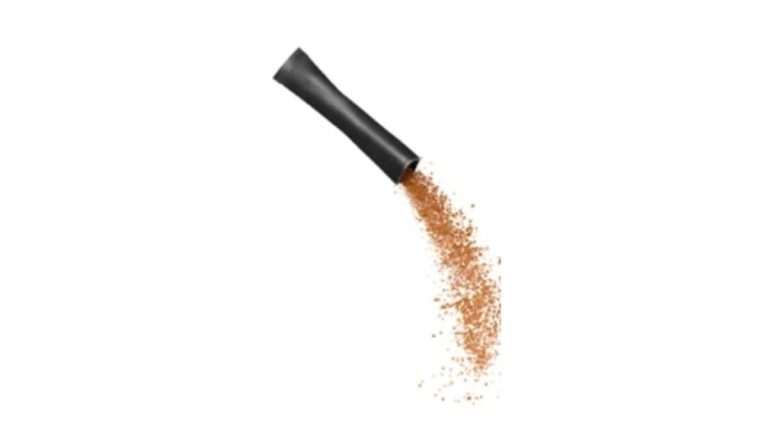How To Ferment Coffee
When I talk to people about the advantages of coffee fermentation, they usually tell me that they’ve never heard of it before. Perhaps you are in the same situation and know little about this process. If so, this is the right place to begin your learning curve.
Fermenting is a form of food preservation that is not limited to food. The method basically converts carbohydrate-rich foods into alcohol or acid by means of microorganisms such as bacteria, yeast, and fungi. Coffee, thanks to its caffeine content, has many properties that make it the best candidate for fermentation.
Fermenting coffee is one of the more unusual methods of preparing coffee. Unlike most methods, this process involves anaerobic conditions in which the coffee grounds are kept inside a fermentation vessel, with no exposure to air.
This produces a beverage that is ostensibly similar to kombucha but with a different flavor profile. Coffee is usually fermented at room temperature or cooler, though the temperature can be raised during the initial stages of fermentation to increase the rate at which sugars are converted into acids.
Of course, before undertaking the process you should know what will be the end product you are looking for.
In this article, we are going to teach you how to ferment coffee at home in your own kitchen using little more than an airtight jar and some water.
The first step you should take is to find the best coffee beans possible. It’s here that many people make the mistake of buying cheap coffee beans. Yes, it might cost a bit more to buy quality beans, but you shouldn’t scrimp on this step. Cheap coffee will only result in bad-tasting coffee in the long run. You want to look for a variety that is full-bodied and has a rich taste rather than a bitter one. Colombian and Ecuadorian coffees tend to be the best choices for most people looking for fermented coffee recipes.
When you’ve bought your desired amount of beans, it’s time to get started with making your own homemade fermented coffee.
Is it possible to ferment coffee?
Table of Contents
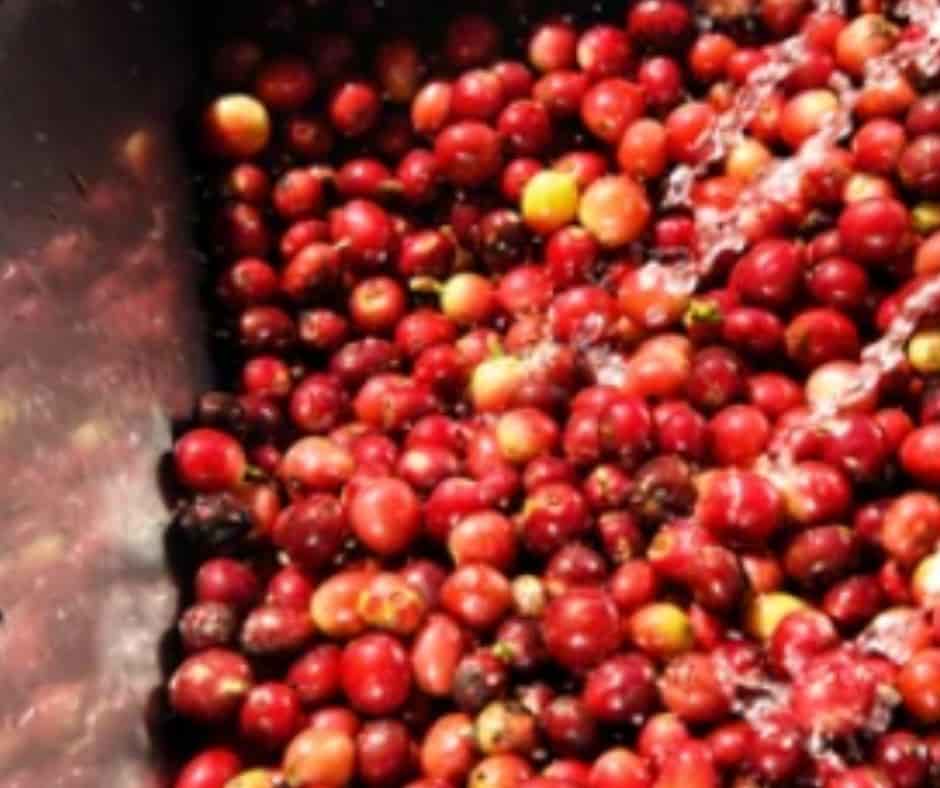
Is it possible to ferment coffee? Yes, it is! First, let us see what fermentation is. Fermentation is a process in which sugar-containing solution is converted into alcohol and some other products. Various fermented foods like wine, vinegar, yogurt, etc are prepared by this procedure.
Coffee beans are fermented to increase their shelf life by removing water from them. This helps to prevent the growth of bacilli and molds. Fermentation is one of the processes that has helped mankind make use of natural resources in creating safe and nourishing foods. When applied to coffee, this process allows the beans to achieve a state of equilibrium between them and the surrounding environment within its packaging. Based on this property alone, it makes perfect sense why fermentation has become popular within cultures that are known for storing food over long periods of time.
Fermentation is a process that’s best left to experts, who have the right equipment and know-how to control the environment. If you’re interested in making your own fermented coffee beans, find out where you can buy them first so you know what you’re aiming for. Then decide if it’s worth the investment and effort for your own home-brewed batch.
There are several different types of fermentation processes that you can use on coffee beans, including some in which the beans are dried out before fermentation, and others in which they’re roasted before fermentation begins. Some people choose to roast their coffee before fermenting it; others don’t roast it at all, because roasting removes some of the flavors from the beans. This makes the taste of your fermented coffee beans inconsistent from batch to batch.
Fermentation can be achieved by using different kinds of equipment like jars, buckets or any kind of container with an airtight lid and a weight on top. The important thing is that you need to allow some oxygen inside the jar while keeping away others from entering.
How long does it take for coffee to ferment?
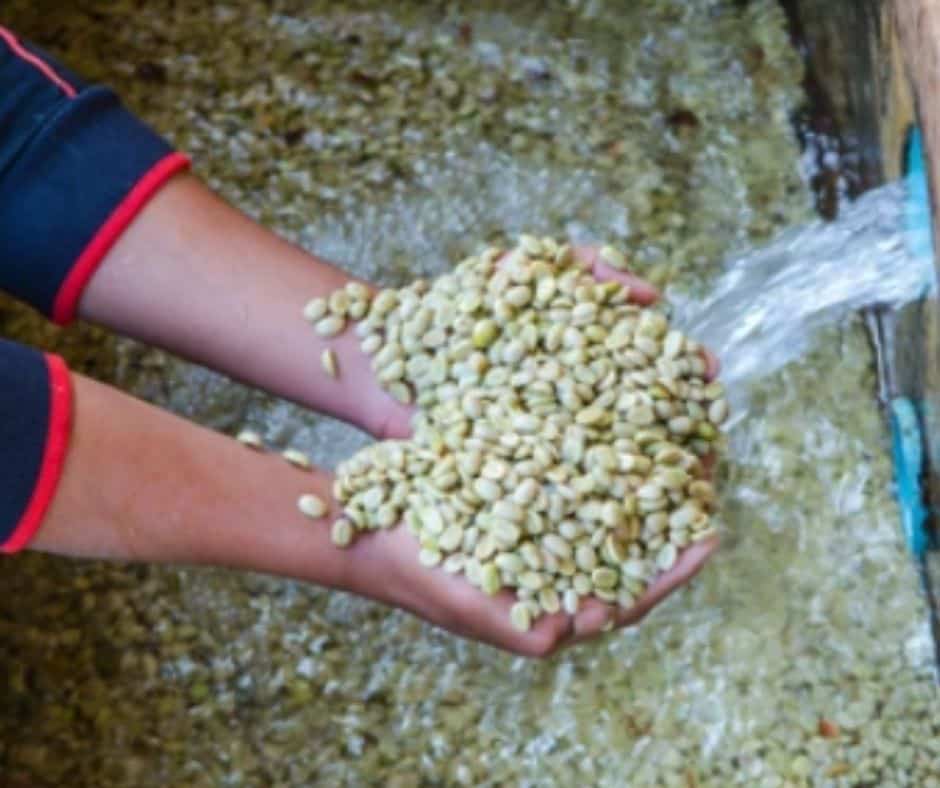
Have you ever wondered how long does it take for coffee to ferment? You’re not alone. The process of Coffee fermentation is usually done in 2 ways, washed and natural. Most of us are probably familiar with the washed process. This method uses water, that has been heated and passed through a bed of specific types of beans to remove their skin, then fermented, later dried.
The natural process, on the other hand, involves taking the seeds and drying them in the sun until they start to crack open at which point, they are removed and laid out on large flat surfaces to finish drying.
In the process of making coffee, there is a 10–12-hour period of fermentation. During this period, enzymes and acids are being extracted from the coffee beans. This is one of the most important factors in getting a good cup of coffee. The longer the beans are left to soak, the more flavor they will produce and the stronger the brew will be. Coffee contains both sugars and acids that are naturally occurring, and it also contains the fermentation agents necessary for the natural process of fermentation to occur. When you add hot water to the coffee grounds there is an interaction between the sugars and acids in the coffee which produces carbon dioxide gas; this is what causes CO2 bubbles on top of your coffee when you first brew it.
Tannins are also produced during fermentation. The longer the brewing period, the more tannins will be extracted from the coffee grounds into your cup. Tannins give coffee its bitter flavor. The longer you brew your coffee, the more bitter and acidic it will become. If you were going to let your coffee sit overnight or longer before drinking it, you would want to make sure that no more than 180-degree water was used to brew it in order to preserve as many of the inherent flavors as possible. Ideally, use water that is just off of boiling (195-205 degrees F) so that you don’t over-extract too many bitter tannins from your grounds.
What are the two methods to ferment coffee?
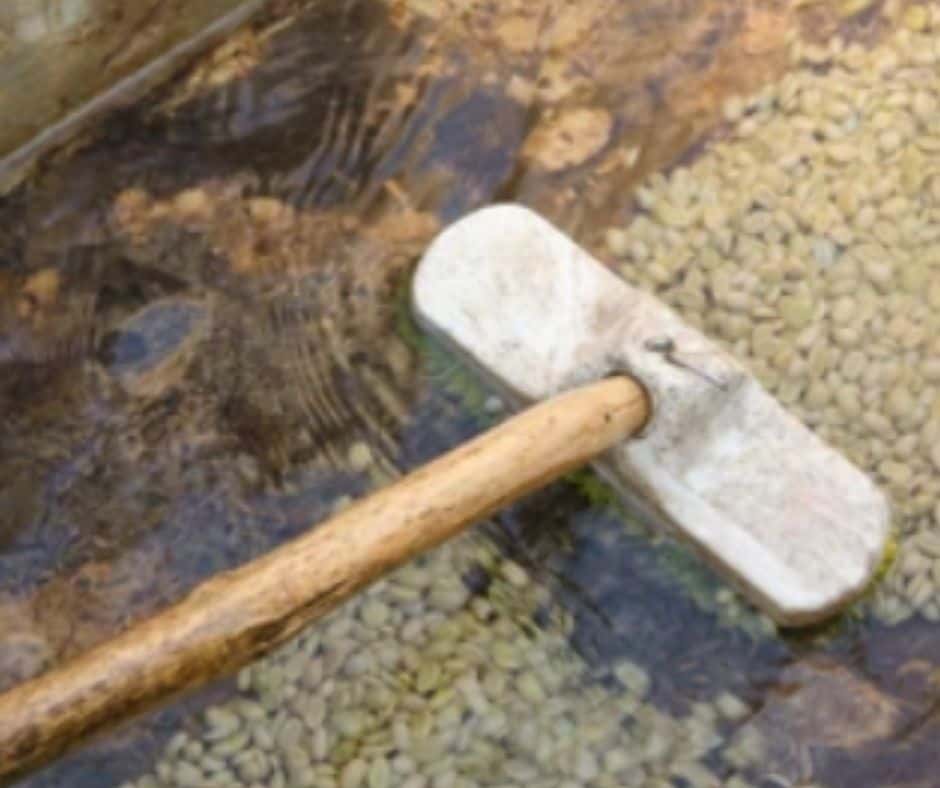
There are two methods to ferment coffee: washed, and natural. Washed process is the most common method of producing coffee in Central America and Brazil. Natural process, on the other hand, is used in certain mountainous regions where the climate is not right for the washed process.
Taste-wise, washed coffees tend to produce brighter and fruitier notes while natural coffees are usually described as earthy or woody. This is because, during natural processing, the pulp of the coffee cherry is left intact. Since it contains a lot of mucilage which has an unpleasant taste, sweeteners are added that “mellow” the flavor by removing some of the bitter components in coffee.
Comparing Washed Process vs Natural Process
When it comes to flavor profiles, the washed process tends to produce brighter and fruitier notes than a natural process. That’s because, during processing, the cherry (pulp and skin) is removed from the bean by machines thus resulting in a cleaner taste. The pulp is then discarded before bagging thus removing another layer of flavoring from the final brew.
On top of that, ripe cherries are more acidic naturally so sweeter additions are made during processing to reduce this acidity thus reducing another source of “bitter” flavors found in coffee
Can you ferment coffee to make alcohol?
You can ferment coffee to make alcohol. The process is the same as for most grains. The first thing you have to do is germinate the grains–that’s where you soak them in water for about 12 hours. This creates internal pressure and temperates the grain. Once this step is done, you mix in water, add your choice of yeast (or not), let it sit in a dark place for a period of time until the temperature reaches 160 degrees, at which point you can siphon it off.
Truly making alcohol from coffee would require the use of enzymes that would break down those long polymers, then yeast to eat the sugar thus produced, and finally a whole bunch of other stuff to convert the alcohol into something drinkable. There’s a good chance this would produce vinegar rather than something you’d want to drink.
The easiest way to get alcohol from coffee is to brew it, as usual, let it cool, and then place it in an airtight container along with some sherry yeast, which can be purchased at most home brewing stores or online. Then wait about ten days for the yeast to do its thing and voila! You’ve got yourself some homemade booze!
In coffee ground fermentation it’s pretty much impossible to control the reaction because you don’t know what kinds of yeasts are floating around in your kitchen or on your counter. Not all yeasts are desirable for making alcohol. Some will produce more carbon dioxide than ethanol.
Is fermented coffee good for you?
There’s a lot of hype right now about the health benefits of drinking fermented coffee. But is this if fact just another fad? Or has science proven that it does indeed have health benefits?
Is fermented coffee good for you?
Yes, if you ask the Koreans who have been drinking the stuff for centuries.
The bean preparation method known as kombucha has been used in Korea since the 18th century. It is believed to have originated in Japan where it is called “kuchikamizake.” The Japanese word means “boiled tea,” and the process involves steeping green tea, vegetables, and fruits in boiling water for about 30 minutes. This mixture is then fermented, or preserved, with a culture of yeast and bacteria that imparts a unique flavor to the final product.
Taste and color vary according to the ingredients used, but most people agree that kombucha tastes similar to sparkling cider. No wonder it’s also popularly known as “the champagne of tea.
Fermented coffee maybe another drink to add to your health-boosting repertoire. Like kombucha, it is made by fermenting coffee beans. The process may increase levels of several beneficial components in coffee beans which include caffeine but also antioxidants, vitamins, minerals, and enzymes.
Fermented coffee has become a popular drink in the health-conscious community. The main reason behind this is that it is believed to be healthier than regular coffee. it is important to know that there are two types of coffee: regular and fermented. They both serve a different purpose and have their unique benefits.
Towards the end of 2015, Kaffa Coffee was introduced in the market as the first product of its kind. It was made from high-quality Arabica beans, which were then fermented in a special lab environment. It contains several beneficial bacteria and yeast, which are important for your gut health. In fact, most of us lack healthy gut bacteria because of our lifestyle. This makes our immune system weak and means that we are prone to several illnesses and ailments. Therefore, if you have a weakened immunity due to your lifestyle or any medical condition like diabetes, cancer, or arthritis; then it is better for you to consider having kaffa or other fermented coffees.
Can cold brew coffee ferment?
Can cold brew coffee ferment? I am sure you must have wondered about this question before. Cold-brew is a type of coffee brewing. It produces a beverage that is less acidic and less bitter than hot-brewed coffee because the coffee grounds are not brewed with near-boiling water, resulting in a lower extraction of bitter components like chlorogenic acids.
Sometimes, trying to ferment a cold brew coffee recipe results in one of two outcomes: It goes bad, or it’s delicious. The reason lies in the process of making coffee itself.
The best coffee beans are roasted at high temperatures to extract all the flavors and aromas. If you leave the beans raw, they can go bad. But if you roast them any longer, they aren’t raw any longer. So, using a cold brew method extracts them without roasting them.
You may have heard that this method results in a smoother flavor than hot brewing methods like espresso or French press. That’s because cold brewing leaves out some of the harsher-tasting elements that make up dark roasted beans — like tannins and caffeine — since those elements get extracted during roasting.
When a drink is fermented, yeast naturally gives off carbon dioxide gas bubbles, which help to create a bubbly drink. The same process occurs when wine ferments into vinegar or beer get better with age. When these bubbles are produced by natural fermentation instead of wild yeast, it’s called “spontaneous fermentation” because the process happens on its own.
Is instant coffee fermented?
Is instant coffee fermented? That’s a great question! It should be clarified that the process of making instant coffee is not the same as regular coffee.
How is Instant Coffee Made?
Instant coffee is made from a soluble powder, which means that it dissolves quickly in water. This is different from traditional coffee, which is made from ground beans that are then brewed to create a liquid beverage.
Instant Coffee Ingredients
The ingredients in instant coffee are similar to those blended for regular fresh-brewed coffee. The main difference between these two types of coffee is the time it takes for them to dissolve when added to water.
The ingredients found in instant coffees include roasted and ground beans, dehydrated milk or cream, sugar, sodium hexametaphosphate (SHMP), molasses, and other flavorings, such as cocoa or vanilla.
Are Instant Coffees Fermented?
Yes, some instant coffees undergo a fermentation process after roasting and grinding of the beans. This can be done by crushing them or by more sophisticated means such as grinding them in a fluidized bed granulator or jet milling machine; both approaches produce an extremely fine powder. In either case, this results in a strong brew that is bitter and very acidic. The goal of this process is to minimize the natural acidity of the grounds by breaking down the cellulose structure of the bean. The SHMP mentioned above prevents any undesirable bitterness from occurring.
Conclusion
To sum up, coffee is rich in health benefits like antioxidants, which help to eliminate the free radicals in our bodies. Through the process of fermenting, many health benefits of coffee are unlocked. Fermenting coffee is also a traditional way to preserve it and ensure that a source of caffeine can be produced when needed. If you’re interested in learning how to ferment or store your own coffee beans at home, this post should give you everything you need to know.

